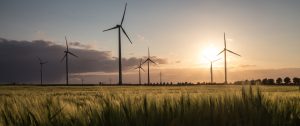
#77 Harvesting the Wind: Planting renewable energy in the Midwest — Sarah Mills
This week we speak with Sarah Mills, a Senior Project Manager, at the Graham Sustainability Institute, and Lecturer at the School for Environment and Sustainability

This week we speak with Sarah Mills, a Senior Project Manager, at the Graham Sustainability Institute, and Lecturer at the School for Environment and Sustainability
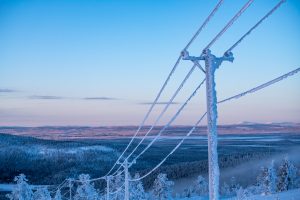
Research Professor of Climate and Society at the Finnish Environment Institute. She holds a long research record, but one of her current projects is focused on national defense and the low-carbon energy transition. This is a starting off point to understand the changes Finland is experiencing in its shift away from Russia and how energy security is reframed.

This week we have a special guest with David Schwartz. How does the theater fit within the energy transition? As policymakers are discovering society matters. Unfortunately, this is more true in some countries than others. David’s focus on Romania deals with economic transitions experienced by the people. His productions highlight the plight of people unable to afford the bare essentials to exist in modern society.
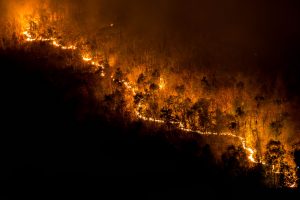
The importance of this episode lies in understanding the shift Finland has experienced since the dissolution of the Soviet Union and the explicit NATO alignment it now holds. Ambiguity is out the door. A new security line is emerging and we should be aware of how this new security pact changes relations with Russia.
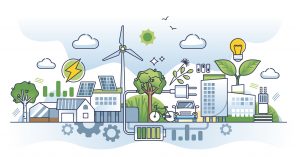
SUMMARY KEYWORDS:
energy, energy communities, photovoltaics, zagreb, island, building, democracy, transition, renewables, recycling

I’ve titled this episode as the ‘Big Conversation on Germany’s Energy Crisis’ for a reason. Our conversation covers a wide field of energy issues. I was really impressed by Pieter’s knowledge of both the policy-making process and the balancing act that politicians straddle.
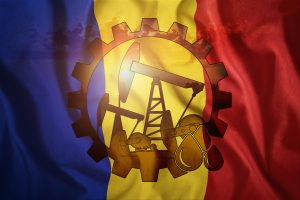
You may ask why Romania? If the energy transition is going to happen – and be a success, it has face the reality of a country like Romania. From the EU perspective, Romania is receiving funds from the EU’s Just Transition Mechanism. From the US side, it appears a good country to foster new small scale nuclear power reactors. And for Europe’s gas security, there are offshore deposits in the Black Sea that still can be tapped. In addition, it has Europe’s largest onshore wind farm with even more renewable energy potential still to be harvested. It short, it is a microcosm of energy complexity that other countries face. Nonetheless, the energy transition is stagnating.
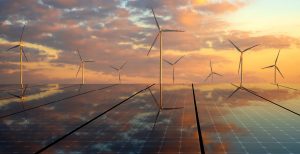
It says about the importance of energy when an organization with a deep biological foundation and a mission to protect nature also addresses the role of renewable energy. This week’s conversation with Ingrid straddles these fields of environmental protection and the deployment of new energy technologies.

we delve into a more philosophical discussion about how energy is not just the outcome of processing raw material, but rather a source of power and control – over both society and nature. That is, we discuss common understandings of how power can be seen through government actions, but we also get into how nature holds power over humanity – and this is one of the key lessons society has forgotten.
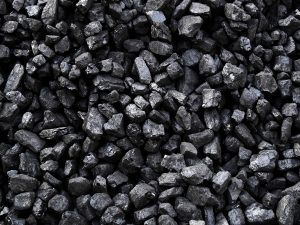
This week we speak with Ioana Ciuta, Energy Coordinator at CEE Bankwatch Network. We’ll be speaking about the Southeast of Europe, in general, historical terms

What is the influence of the 1970s on our current energy system? The importance of energy sits within our daily lives. As Rudiger states, any supply shortages or price increases are immediately noticed making energy a key political issue. The failure to secure supplies demonstrates weak leadership. Inversely, effective energy crisis management can display strong leadership skills. I think this can be one of our broad take-aways from looking at lessons learned from the 1970s energy crisis.

This week we speak with Benjamin Görlach, Head of Economics and Policy Assessment, Ecologic Institute. If you like wide-ranging interviews about the policy challenges of
| Cookie | Duration | Description |
|---|---|---|
| cookielawinfo-checkbox-analytics | 11 months | This cookie is set by GDPR Cookie Consent plugin. The cookie is used to store the user consent for the cookies in the category "Analytics". |
| cookielawinfo-checkbox-functional | 11 months | The cookie is set by GDPR cookie consent to record the user consent for the cookies in the category "Functional". |
| cookielawinfo-checkbox-necessary | 11 months | This cookie is set by GDPR Cookie Consent plugin. The cookies is used to store the user consent for the cookies in the category "Necessary". |
| cookielawinfo-checkbox-others | 11 months | This cookie is set by GDPR Cookie Consent plugin. The cookie is used to store the user consent for the cookies in the category "Other. |
| cookielawinfo-checkbox-performance | 11 months | This cookie is set by GDPR Cookie Consent plugin. The cookie is used to store the user consent for the cookies in the category "Performance". |
| viewed_cookie_policy | 11 months | The cookie is set by the GDPR Cookie Consent plugin and is used to store whether or not user has consented to the use of cookies. It does not store any personal data. |